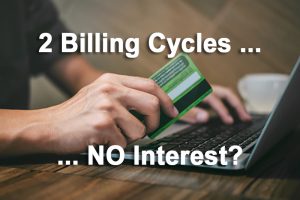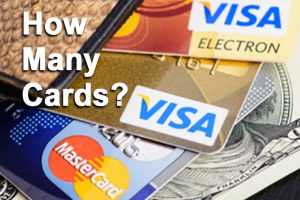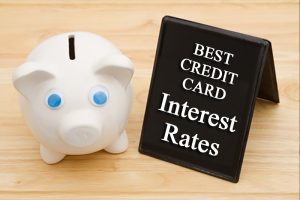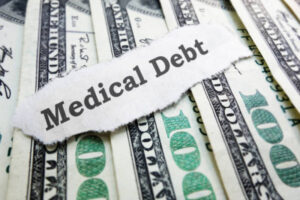Debit cards which are issued by your bank in partnership with MasterCard or Visa are often totally misunderstood. In fact, a lot of people think that it’s the best way to pay for purchases so that they won’t be adding to their credit card debt.
Sure the logic appears okay on the surface.
However, if you pay for purchases with your debit card, you are missing out on leveraging free money.
Here’s why.
When you pay for a purchase with your debit card, the money for the purchase is deducted directly from your bank account (or brokerage account if it’s a brokerage debit card).
By using your debit card, you are missing out on leveraging the power of the float.
In other words, you are not getting a free loan of 25 to 30 days (depending on your credit card float) as you would with a bank credit card.
See the point?
So in essence, when making purchases, it is best to use your bank credit card so that you can use the bank’s money first instead of your money.
Given that, should you then cancel any debit cards that you may have?
Nope, there is a right time to use your debit card.
First of all, it’s good to have a debit card in case of an emergency wherein you will need cash.
Using a bank credit card for cash advances should be avoided at all costs since you will be charged with heart-attack-inducing interest rates plus some form of transaction fee.
So make sure to avoid credit card cash advances at all costs.
Another good reason to have your debit card handy is this.
If you love to travel out-of-state, bank debit cards are often linked to automatic teller machines (ATM) thereby allowing you to withdraw cash in the event that you run short of cash.
However, you might like to check with your bank how much out-of-state transactions will cost you in terms of fees as some banks have decided to charge some sort of fee knowing that people don’t carry much cash when they travel.
For those who have a history of overspending with their credit cards, the use of bank debit cards might be a wiser decision.
It’s really mostly psychological.
When you know that you will be using your own money, and not the bank’s money, to purchase something, it makes you think twice or thrice on whether you really should spend.
For people who are trying to avoid overspending, a debit card serves as a “money conscience” tool.
IMPORTANT: Here is one advantage of credit cards vs. a debit card that you might like to keep in mind.
If there is an unauthorized charge on your credit card, you can report this and no money is taken from you. Banks will cover this entirely at no cost to you.
On the contrary, if there is an unauthorized charge on your debit card, you could be liable for a lot.
Meaning, any fraudulent charges made on your debit card is totally on you. Your whole account could potentially be wiped out.
Yup, you can kiss your money goodbye. Your bank won’t be liable to cover your ass.
Finally, regularly using your credit card and paying off your balance in full each month definitely helps improve your credit score.
And as you know, having a good credit rating is very important if ever you decide to buy a car, a house, or take out a major loan.
Disclaimer: The information provided in this article is for educational and informational purposes only and should not be construed as financial, legal, or professional advice. While efforts are made to ensure accuracy, the content may not reflect the most current legal or financial developments. No representations or warranties are made about the completeness, reliability, or accuracy of this information. Results may vary. Using any information provided is solely at your own risk. Consult with a financial advisor or attorney for specific advice tailored to your situation.














